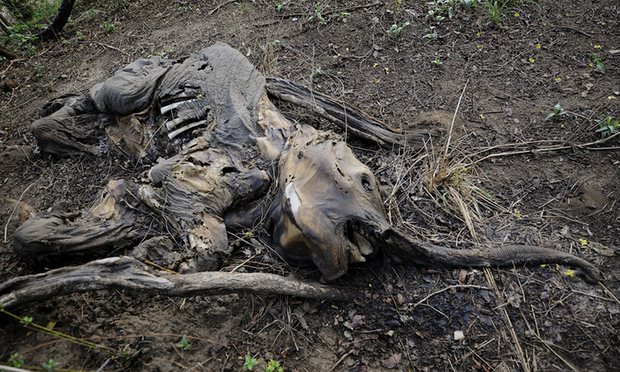Living Planet Index shows vertebrate populations are set to decline by 67% on 1970 levels unless urgent action is taken to reduce humanity’s impact

A victim of poachers in Kenya: elephants are among the species most impacted by humans, the WWF report found. Photograph: imageBROKER/REX/Shutterstock
CLICK HERE - Living Planet Report 2016
theguardian.com - by Damian Carrington - October 26, 2016
The number of wild animals living on Earth is set to fall by two-thirds by 2020, according to a new report, part of a mass extinction that is destroying the natural world upon which humanity depends.
The analysis, the most comprehensive to date, indicates that animal populations plummeted by 58% between 1970 and 2012, with losses on track to reach 67% by 2020. Researchers from WWF and the Zoological Society of London compiled the report from scientific data and found that the destruction of wild habitats, hunting and pollution were to blame.
(READ COMPLETE ARTICLE)
Recent Comments